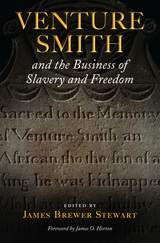913 books about African American & Black and 4
start with V
913 books about African American & Black and 4
913 books about African American & Black
4 start with V start with V
4 start with V start with V

Valleys of the Shadow
The Memoir of Confederate Captain Reuben G. Clark
Willene B. Clark
University of Tennessee Press, 1994
Valleys of the Shadow is the previously unpublished account of Captain Reuben Clark’s first-hand experiences as a Confederate officer, a prisoner of war, and a post war civilian living in a conquered state.
Captain Clark was a twenty-seven-year-old Knoxville businessman when the first shots of the Civil War were fired in 1861. Like many southern gentlemen, Clark was opposed to secession but could not desert his family and friends. Enlisting as a first lieutenant in the Confederacy’s Third Tennessee Infantry Regiment, he spent his first night as a soldier on the bloody battlefield of Manasses. Clark’s recollections of Manasses and the battles and skirmishes that followed pinpoint his regiment’s activities in previously undocumented areas while providing valuable analyses of battles from a participant’s point of view and discussing the irony many soldiers felt when battle pitted them against men they had known before the war in business, politics, and society.
Captured after the battle of Morristown in the fall of 1864, Clark was jailed in Knoxville, then under Federal control. His account of the eight months he spent as a prisoner—his harsh treatment, a near-fatal illness, the false accusations of traitorous activities—offer a detailed description of the physical and legal battles of a Confederate prisoner of war fighting to obtain his freedom. Clark’s post war experiences relate his struggles as a former Rebel living in a conquered state, reflecting the deeply divided loyalties of East Tennessee that continued for years after the war’s end.
This first book in the Voices of the Civil War series shares the story of a man who remained sensible of his kinship with those he was forced to call his enemies. Written a quarter-century after the war began, Clark's memories vividly bring to life the tragedy that was the Civil War.
Willene B. Clark, a granddaughter of Captain Clark, is a professor of art history at Marlboro College, Marlboro, Vermont.
Captain Clark was a twenty-seven-year-old Knoxville businessman when the first shots of the Civil War were fired in 1861. Like many southern gentlemen, Clark was opposed to secession but could not desert his family and friends. Enlisting as a first lieutenant in the Confederacy’s Third Tennessee Infantry Regiment, he spent his first night as a soldier on the bloody battlefield of Manasses. Clark’s recollections of Manasses and the battles and skirmishes that followed pinpoint his regiment’s activities in previously undocumented areas while providing valuable analyses of battles from a participant’s point of view and discussing the irony many soldiers felt when battle pitted them against men they had known before the war in business, politics, and society.
Captured after the battle of Morristown in the fall of 1864, Clark was jailed in Knoxville, then under Federal control. His account of the eight months he spent as a prisoner—his harsh treatment, a near-fatal illness, the false accusations of traitorous activities—offer a detailed description of the physical and legal battles of a Confederate prisoner of war fighting to obtain his freedom. Clark’s post war experiences relate his struggles as a former Rebel living in a conquered state, reflecting the deeply divided loyalties of East Tennessee that continued for years after the war’s end.
This first book in the Voices of the Civil War series shares the story of a man who remained sensible of his kinship with those he was forced to call his enemies. Written a quarter-century after the war began, Clark's memories vividly bring to life the tragedy that was the Civil War.
Willene B. Clark, a granddaughter of Captain Clark, is a professor of art history at Marlboro College, Marlboro, Vermont.
[more]

Venture Smith and the Business of Slavery and Freedom
James Brewer Stewart
University of Massachusetts Press, 2010
This book originated in the summer of 2006, in the burial ground of the First Church of Christ, Congregational, of East Haddam, Connecticut, where a team of forensic scientists began excavating the graves of two emancipated slaves, Venture Smith (d. 1805) and his wife, Marget (d. 1809). Those requesting this remarkable investigation were the Smiths' direct descendants, members of the eighth, ninth, tenth, and eleventh generations, who were determined to honor the bicentennial of their founding ancestor's death by discovering everything possible about his life. Opening burial plots in the hope of recovering DNA for genealogical tracing proved a compelling first step.
But what began as a scientific inquiry into African origins rapidly evolved into an unparalleled interdisciplinary collaboration between historians, literary analysts, geographers, genealogists, anthropologists, political philosophers, genomic biologists, and, perhaps most revealingly, a poet. Their common goal has been to reconstruct the life of an extraordinary African American and to assay its implications for the sprawling, troubled eighteenth-century world of racial exploitation over which he triumphed. This volume displays the rich results of that collaboration.
A highly intelligent, deeply self-motivated and immensely energetic slave transported from Africa, Venture Smith transformed himself through unstinting labor into a respectable Connecticut citizen, a successful entrepreneur, and the liberator of other enslaved African Americans. As James O. Horton emphasizes in his foreword to this volume, "Venture Smith's saga is a gift to all who seek to understand the complex racial beginnings of America. It helps to connect the broad American story with the stories of many Americans whose lives illustrate the national struggle to live out the national ideals."
In addition to Horton and volume editor James Brewer Stewart, contributors include Cameron Blevins, Vincent Carretta, Anna Mae Duane, Robert P. Forbes, Anne L. Hiskes, Paul Lovejoy, Marilyn Nelson, David Richardson, Chandler B. Saint, Linda Strausbaugh, Kevin Tulimieri, and John Wood Sweet.
But what began as a scientific inquiry into African origins rapidly evolved into an unparalleled interdisciplinary collaboration between historians, literary analysts, geographers, genealogists, anthropologists, political philosophers, genomic biologists, and, perhaps most revealingly, a poet. Their common goal has been to reconstruct the life of an extraordinary African American and to assay its implications for the sprawling, troubled eighteenth-century world of racial exploitation over which he triumphed. This volume displays the rich results of that collaboration.
A highly intelligent, deeply self-motivated and immensely energetic slave transported from Africa, Venture Smith transformed himself through unstinting labor into a respectable Connecticut citizen, a successful entrepreneur, and the liberator of other enslaved African Americans. As James O. Horton emphasizes in his foreword to this volume, "Venture Smith's saga is a gift to all who seek to understand the complex racial beginnings of America. It helps to connect the broad American story with the stories of many Americans whose lives illustrate the national struggle to live out the national ideals."
In addition to Horton and volume editor James Brewer Stewart, contributors include Cameron Blevins, Vincent Carretta, Anna Mae Duane, Robert P. Forbes, Anne L. Hiskes, Paul Lovejoy, Marilyn Nelson, David Richardson, Chandler B. Saint, Linda Strausbaugh, Kevin Tulimieri, and John Wood Sweet.
[more]

Vitality Politics
Health, Debility, and the Limits of Black Emancipation
Stephen Knadler
University of Michigan Press, 2019
Vitality Politics focuses on a slow racial violence against African Americans through everyday, accumulative, contagious, and toxic attritions on health. The book engages with recent critical disability studies scholarship to recognize that debility, or the targeted maiming and distressing of Black populations, is a largely unacknowledged strategy of the U.S. liberal multicultural capitalist state. This politicization of biological health serves as an instrument for insisting on a racial state of exception in which African Americans’ own unhealthy habits and disease susceptibility justifies their legitimate suspension from full rights to social justice, economic opportunity, and political freedom and equality. The book brings together disability studies, Black Studies, and African American literary history as it highlights the urgent need and gives weight to a biopolitics of debilitation and medicalization to better understand how Black lives are made not to matter in our supposedly race-neutral multicultural democracy.
[more]

Vixen
Cherene Sherrard
Autumn House Press, 2017
Cherene Sherrard’s poetry collection Vixen takes to task the historical narratives and artistic mediums that have shaped racial and gender identity. She asks her readers to closely examine the hand that guides the pen, the photographer behind the lens, and the star on stage. In powerful, finely crafted lines, Sherrard’s poems interrupt and redirect the conversation. Sherrard’s voice-driven poems are accessible to any reader interested in work that examines racial and black female representation within a historical, cultural, and artistic framework.
[more]
READERS
Browse our collection.
PUBLISHERS
See BiblioVault's publisher services.
STUDENT SERVICES
Files for college accessibility offices.
UChicago Accessibility Resources
home | accessibility | search | about | contact us
BiblioVault ® 2001 - 2024
The University of Chicago Press









